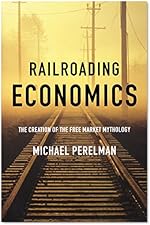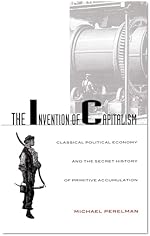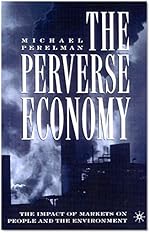Archive for October, 2009|Monthly archive page
Dismantling the Economy
During the New Deal, the government left a legacy of buildings, parks, and public spaces. Gray Brechin deserves great credit for documenting this achievement.
http://livingnewdeal.berkeley.edu/
In contrast, the U.S. is engaged in wasteful spending on war and bailouts that will leave a pitifully small legacy. What king of legacy will Obama leave?
I remember when the United States was going to prosper as an information economy, based on the premise that we are either the smartest or the best educated in the world. To ensure success in achieving this vision, the country is engaged in a massive defunding of education. California, of course, is the leader in this respect.
Presumably, imposing requirements multiple choice tests and scripted teaching in the poor neighborhoods will be all we need, once we can break the teachers’ unions.
In line with the steady undermining of information in the information economy, the University of California is making some questionable choices. Here is one that has not been widely publicized. Continue reading
Insight on Iran
When I was at the conference in Turkey, one of the highpoints was a presentation on Iran by Farhang Morady. I appreciated the way that he analyzed the fluidity of the situation. I thought that I would share with you.
Does Inequality Get a Bad Rap?
“A Goldman Sachs International adviser defended compensation in the finance industry as his company plans a near-record year for pay, saying the spending will help boost the economy. “We have to tolerate the inequality as a way to achieve greater prosperity and opportunity for all,” Brian Griffiths, who was a special adviser to former British Prime Minister Margaret Thatcher, said yesterday.”
from: Binham, Caroline. 2009. “Goldman Sachs’s Griffiths Says Inequality Helps All.” Bloomberg (21 October).
http://www.bloomberg.com/apps/news?pid=20601087&sid=a8upOpH5Q3Tw
Some economiss actually believe this stuff. I wrote about this theory in The Confiscation of American Prosperity:
According to this theory, markets appropriately reward the rich and powerful because of their superior productivity. Consequently, they deserve every bit of what they earn. Supposedly, the best cure for poverty is to allow natural economic forces to follow their course. These economists are unapologetic about their stance. For example, when Finis Welch, who gave his prestigious Richard T. Ely lecture at the 1999 meeting of the American Economic Association, he provocatively titled his talk, “In Defense of Inequality.” There, Welch proclaimed:
I believe inequality is an economic “good” that has received too much bad press …. Wages play many roles in our economy; along with time worked, they determine labor income, but they also signal relative scarcity and abundance, and with malleable skills, wages provide incentives to render the services that are most highly valued …. Increasing dispersion can offer increased opportunities for specialization and increased opportunities to mesh skills and activities. [Welch 1999, pp. 1 and 15] Continue reading
Bart Lytton
Bart Lytton was my mother’s cousin, whose business whose business represented 20% of the savings and loan industry before it crashed with the Southern California real estate market after the Kennedy assassination moved the center of real estate speculation from California to Texas. Before that, he was a communist party Hollywood screenwriter.
In 1960, when he was the largest donor to the Democratic Party in California, and had given Kennedy $200,000 in cash, he invited me to California to see how he operated, especially during the Democratic convention. For a few days I hobnobbed with senators and governors. Because they assumed I was his son, I was free to speak my mind to them.
I got a call this morning from Richard Harris Smith, who is writing a biography of Bart. Richard also probably wrote the Wikipedia entry on Bart, which is very informative. Richard was telling me things about my family that I never knew.
http://en.wikipedia.org/wiki/Bart_Lytton
In any case, I am looking forward to reading Richard’s book.
Capitalism as an Infectious Disease
Joseph Schumpeter once wrote, “the budget is the skeleton of the state stripped of all misleading ideologies.”
Schumpeter, Joseph A. 1954. “The Economic Crisis of the Tax State.” International Economic Papers, 4; reprinted in Schumpeter, Joseph A. 1991. The Economics and Sociology of Capitalism, ed. Richard Swedberg (Princeton: Princeton University Press): pp. 99-140.
Yesterday’s post dealt with the way that budget choices create pressures that shape pension funds’ choices, something like the way that people in desperate states make decisions that they would not make under ordinary circumstances. Continue reading
Pension Fund Fraud: The Wall Street Journal vs. Unions
The Wall Street Journal posted a story about Orange County’s pension fund, gloating that it outperformed the supposedly union dominated California state pension fund: CALPERS.
Jim Carlton and Tamara Audi. 2009. “Orange County Dodged Bullet by a Avoiding Calpers: Southern California Locale Decided to Stick with Its Small Pension Fund in 2006.” (16 October): p. A 4.
“Orange County had a chance three years ago to join the California Public Employees’ Retirement System. Instead, county leaders stayed with a small Orange County pension fund, and now they feel vindicated for their stay-local strategy. While Calpers’s investments went on to lose almost 30% of their value during the crash of financial markets last year, the Orange County Employees Retirement System, or Ocers, lost only 21%.”
“Now that Calpers has revealed that a former board member allegedly reaped $50 million in fees for arranging investments that could saddle state taxpayers with hundreds of millions of dollars in losses, those in Orange County who once lobbied to ditch Ocers are even happier their side lost the debate.”
“Calpers, whose board is dominated by union ties, has invested much more aggressively in equities.” Continue reading
Ideologically Loaded Rhetoric of Mainstream Economics
A half-century ago, John Kenneth Galbraith had a marvelous description of the shaping of language regarding crises.
Galbraith, John Kenneth. 1958. The Affluent Society (Boston: Houghton Mifflin, 1998).
38: “Marx’s reference to the “capitalist crisis” gave the word an ominous sound. The word panic, which was a partial synonym a half century ago, was no more reassuring. As a result, the word depression was gradually brought into use. This had a softer tone; it implied a yielding of the fabric of business activity and not a crashing fall. During the great depression, the word depression acquired from the event described an even more unsatisfactory connotation. Therefore, the word recession was substituted to connote an unfearsome fall in business activity. But this term eventually acquired a foreboding quality and a recession in 1953-1954 was widely characterized as a rolling readjustment. By the time of the Nixon administration, the innovative phrase “growth recession” was brought into use.”
I am presently reading Reinhart and Rogoff’s new book. Continue reading
The Chamber of Commerce
Joshua Holland published an article on Alternet: Not Your Father’s Chamber of Commerce: National Organization Is Now a
Tool of the Radical Right, suggesting that the Chamber of Commerce has just become part of the Radical Right.
http://www.alternet.org/story/143263/
In the Confiscation of Economic Prosperity, I discuss the earlier role of the Chamber in creating the modern right wing movement. Click for your reading pleasure.
Neoconservative Idiocy: How An Unconstrained Lust for Profit and Power Implodes
I can understand the attraction of an unconstrained lust for profit and power, but I am puzzled by the stupidity of its practitioners. I’m presently researching the life and work of William Petty, more than three centuries ago. Petty was an avaricious land pirate, who is willing to move entire populations from one country to another and promoted wars in order to win favor with the government, but Petty was not stupid.
For example, Petty, who is trained in medicine, realized the economic benefits of a healthy population. He even called for clinics to care for orphans and poor children.
I was struck by a recent Wall Street Journal article that reminded me of Petty’s intelligence. David Wessel reported on a paper from the Chicago branch of the Federal Reserve Board, showing how children’s health care boosted test scores. The study itself pointed to a relatively obvious outcome, I wondered why so little attention has been paid to the economic payoffs from better health care — especially in the mainstream media.
Here is a snippet from the articlet:
Wessel, David. 2009. “Wider Health-Care Access Pays Off.” Wall Street Journal (8 October): p. A2.
http://online.wsj.com/article/SB125493500031971173.html#mod=todays_us_page_one
Federal Reserve Bank of Chicago Working Paper 2008-20
“Kenneth Chay of Brown University, Jonathan Guryan of the University of Chicago’s Booth School of Business and Bhashkar Mazumder of the Federal Reserve Bank of Chicago … (link) improvements in test scores of black teenagers from the South in the 1980s to improved health care they received as children after Southern hospitals were integrated in the 1960s. The bottom line, in a working paper circulated by the Chicago Fed, is this: “Improved post-neonatal health among blacks born between the early 1960s and early 1970s … led to long-term improvements in the academic and cognitive skills of these cohorts as teenagers.” Continue reading
Rare Earths, Common Corruption
An earlier note discussed the question about the possible impending scarcity of rare earth minerals.
https://michaelperelman.wordpress.com/2009/09/06/a-different-environmental-threat-peak-rare-minerals-china-and-green-technology/
Shortly thereafter, the esteemed representative, Jerry Lewis (I prefer the other comedian) put a $3 million earmark for an already profitable US mining company in the House Defense Bill. Should one be surprised that, along with two private equity funds, Goldman Sachs is the owner?
 Comments (3)
Comments (3)
 25 – The Confiscation of American Prosperity: From Right-Wing Extremism and Economic Ideology to the Next Great Depression
25 – The Confiscation of American Prosperity: From Right-Wing Extremism and Economic Ideology to the Next Great Depression 30 – Manufacturing Discontent: The Trap of Individualism in Corporate Society
30 – Manufacturing Discontent: The Trap of Individualism in Corporate Society Class Warfare in the Information Age
Class Warfare in the Information Age Railroading Economics: The Creation of the Free Market Mythology
Railroading Economics: The Creation of the Free Market Mythology Steal This Idea: Intellectual Property Rights and the Corporate Confiscation of Creativity
Steal This Idea: Intellectual Property Rights and the Corporate Confiscation of Creativity The Invention of Capitalism: Classical Political Economy and the Secret History of Primitive Accumulation
The Invention of Capitalism: Classical Political Economy and the Secret History of Primitive Accumulation The Perverse Economy: The Impact of Markets on People and the Environment
The Perverse Economy: The Impact of Markets on People and the Environment